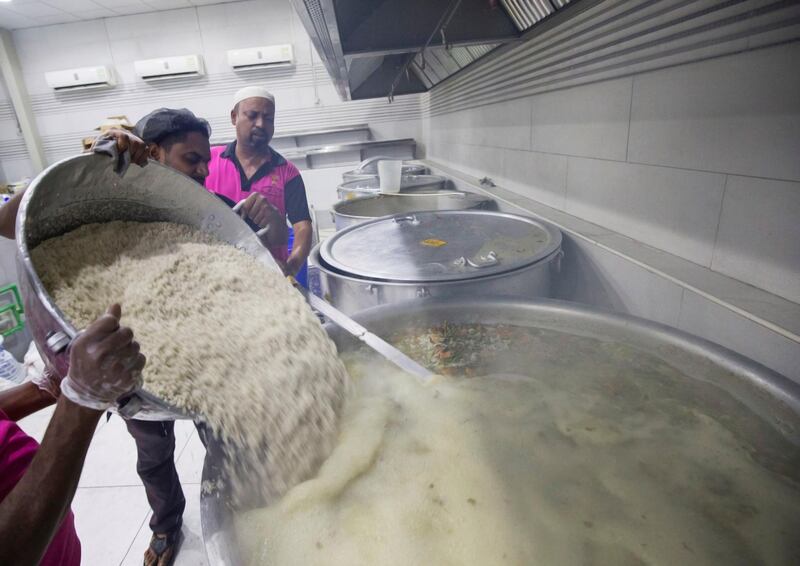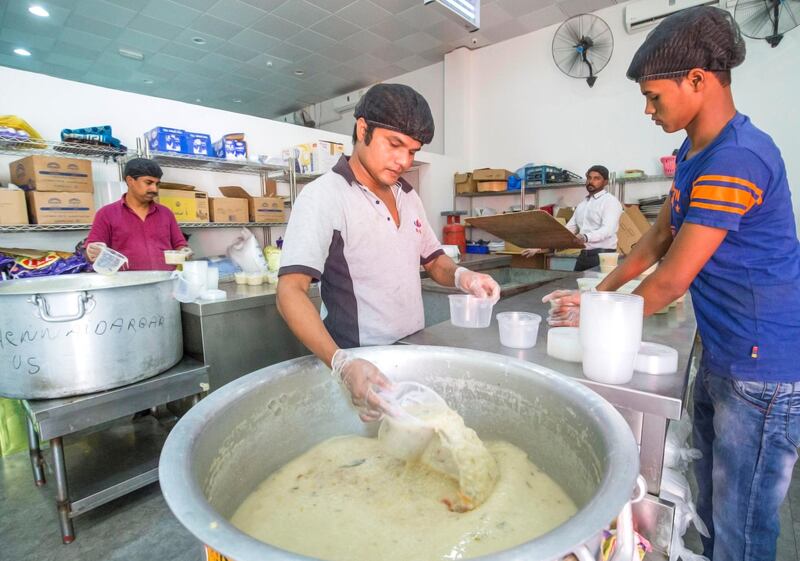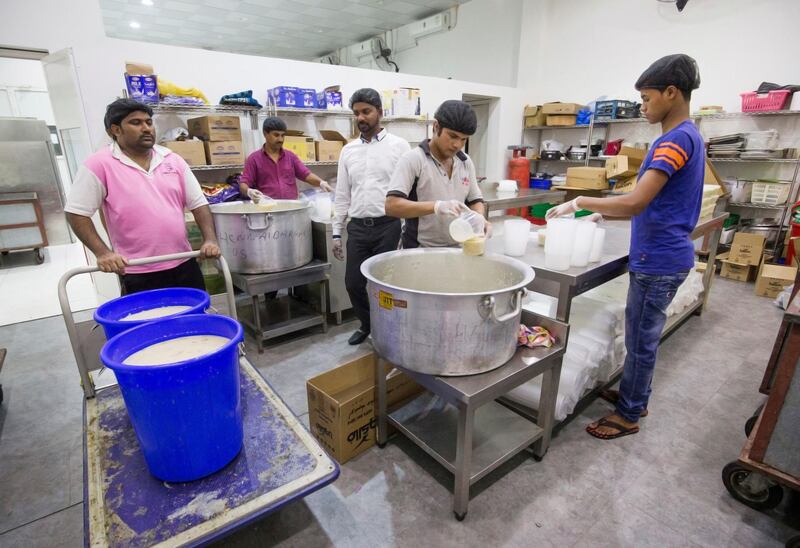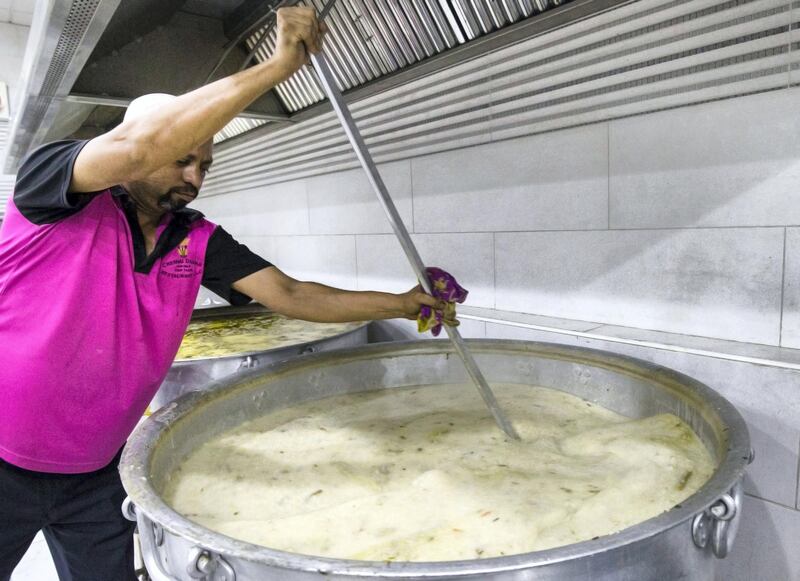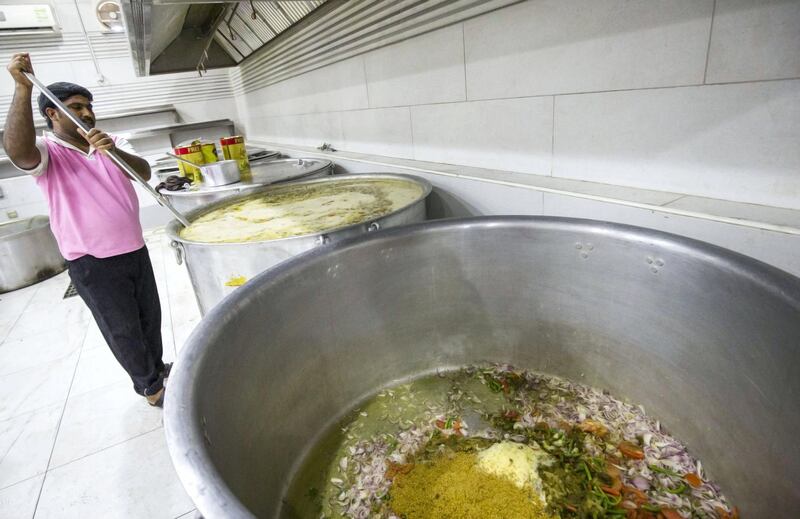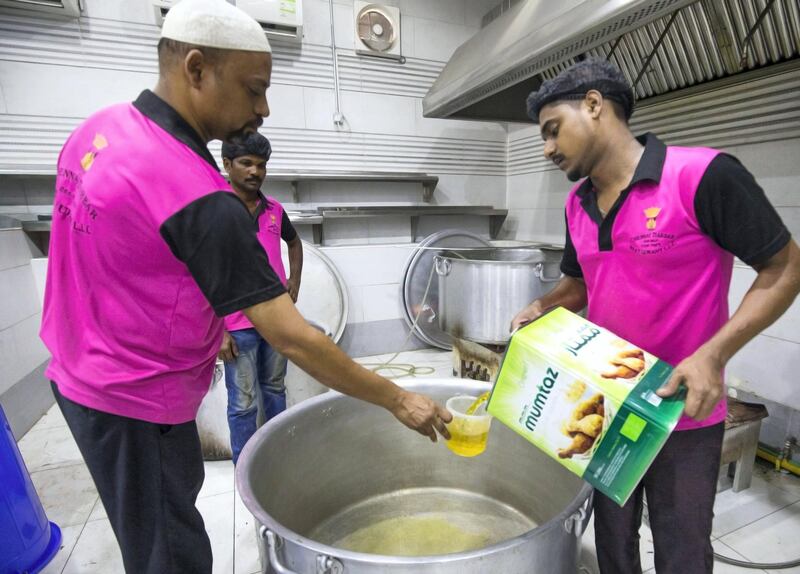The art of whipping up thousands of litres of a rice-meat porridge that stays true to the original flavour is the daily challenge of an Indian chef who watches over staff mixing specific quantities of more than 20 ingredients.
The kanji mixture bubbles in large vats in a warehouse in Al Quoz being used temporarily as a community Ramadan kitchen to cook 3,000 litres of the special broth from south India for 6,000 faithful as an iftar meal.
“Each district in Tamil Nadu has a different way of making the kanji. When cooking such big amounts, then it’s the proportion and quantity of each spice you add that makes the difference,” said Mastan Ansari, who has worked in the UAE for a decade after stints in Malaysia, Saudi Arabia and southern Tamil Nadu state in India where he learnt watching his father cook.
Mr Ansari’s special ingredient is condensed milk that adds flavour but does not sweeten the rice porridge mix.
Ansari is no stranger to catering for large gatherings. He once provided for 10,000 guests at a wedding dinner in India preparing mutton biryani, fried chicken, spicy aubergine curry and a sweet bread dessert while supervising a 200-strong staff.
It is far more taxing now since the kanji is made daily during the holy month.
One batch of kitchen staff gets to work by scraping coconuts, chopping onions and tomatoes the night before.
The next team comes in at 5am to wash the rice, blend the coconut to extract milk and add the meat and spices into the mixture bubbling in industrial scale aluminium vats for almost two hours.
Once cooled for more than an hour the mixture is emptied into blue buckets and then poured into small plastic containers.
Mr Ansari hands out instructions in a room filled with large sacks of lentils and broken rice.
“I never thought I would cook our favourite dish for so many people in the UAE every day,” he said.
“The heat in the kitchen takes away all our strength. It gets so hot people would feel like running away from the work. But because it is Ramadan we gain strength from the blessings given to us by those who eat the kanji.”
Living in the UAE for 10 years, Mr Ansari has been saving for a home for his wife and six children in India.
“They live with my mother but in time I hope to have my own house. This country has helped me a lot,” he said.
Usman Ali, owner of the Chennai Darbar Restaurant that prepares the meal said the holy month was the motivator for his staff.
_______________
Read more:
Dubai mosque's Indian kanji porridge draws Muslims from around the world
Kanji broth from south India adds unique flavour to Dubai iftar
_______________
Arriving in the UAE 18 years ago he worked in the electronic hardware section of Mercedes and started his restaurant six years ago.
Mr Ali’s display photo captures him posing near a well-known white Mercedes-Benz G-Wagen with the number plate ‘Dubai 1’ and reflects his gratitude for the country and its rulers.
“I took that photo when Sheikh Mohammed’s car came in for servicing and that is my favourite photo. I have studied for IT diplomas here and started my own business in this country. All of my knowledge, the UAE has given me. I want to give back as much as I can,” he said.
The restaurant has been preparing the porridge for the past two years.
The daily Ramadan kanji meal has been a staple for more than 40 years as part of an iftar meal co-ordinated by charity group Iman Cultural Centre in old Deira.
Better known as a bland rice porridge, kanji is a staple in villages in southern India but the meat based dish served annually during Ramadan in Dubai is a speciality of India’s Tamil Nadu state.
“We are making our kanji known to people from Kenya, Uganda, UK, USA. Our restaurant is closed during the day because of Ramadan so it is fruitful for us to do work like this for iftar,” Mr Ali said.
